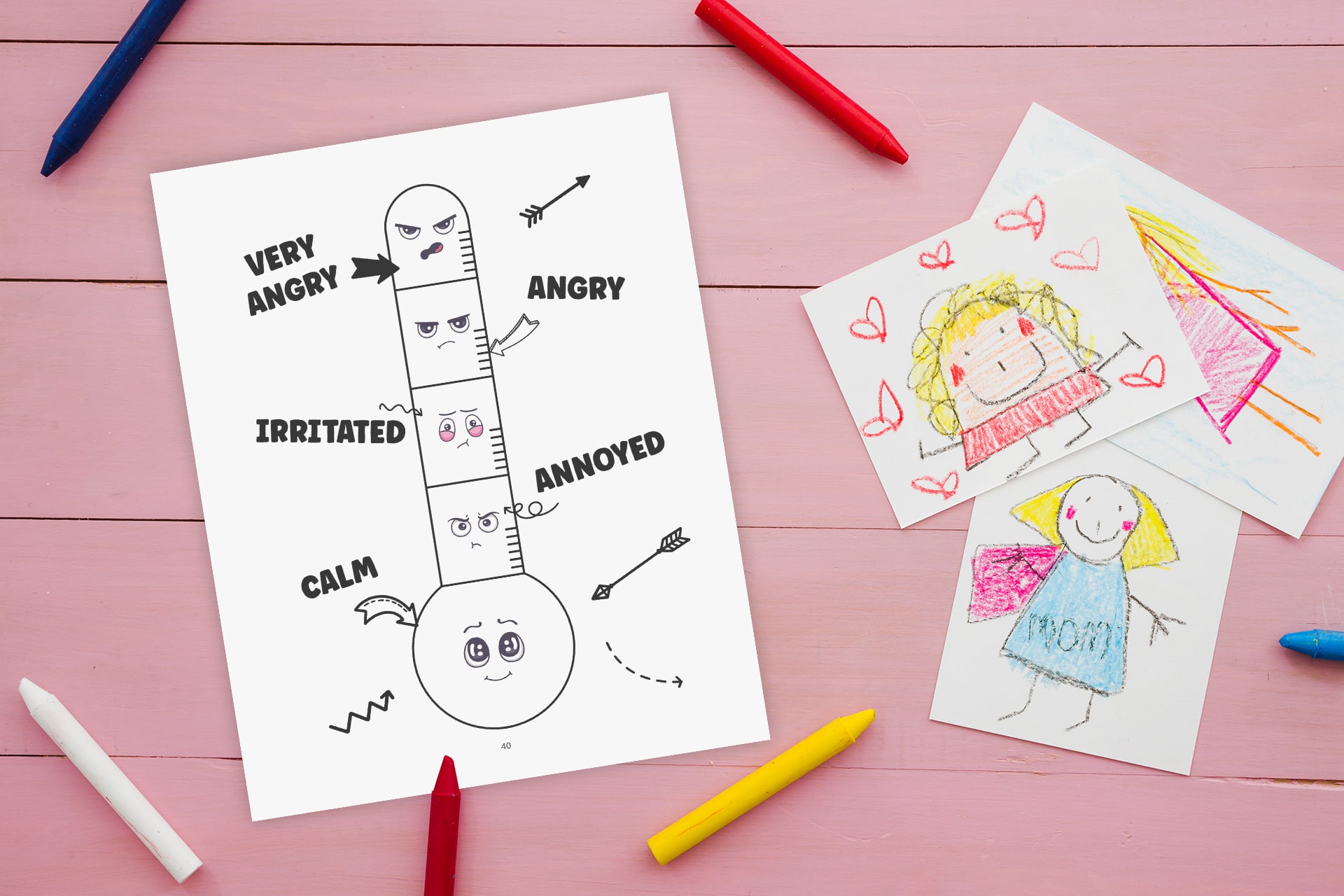In the ever-evolving world of parenting, one challenge that often arises is helping our children manage their emotions effectively. Kids experience a wide range of feelings, including anger, which can sometimes be overwhelming for them and their parents. This is where an anger management workbook for kids can play a vital role. In this article, we’ll explore how these workbooks can help children develop valuable emotional regulation skills.
What is a workbook to help kids control their anger?
An anger management workbook for kids is a resource designed to assist children in understanding and managing their anger in a healthy and constructive way. These workbooks typically contain a variety of exercises, activities, and prompts that guide children through the process of recognizing their emotions, identifying triggers, and learning appropriate coping strategies.
How do I teach my 7-year-old anger management?
Teaching anger management to a 7-year-old can be an essential life skill that sets the foundation for emotional well-being. Here are some steps to help your child manage their anger effectively:
- Communication: Encourage open and honest communication with your child. Let them express their feelings without judgment.
- Identify Triggers: Help your child identify what makes them angry. This can be certain situations, people, or even physical sensations.
- Teach Relaxation Techniques: Teach simple relaxation techniques such as deep breathing or counting to ten to help your child calm down when they’re upset.
- Use Visual Aids: Anger management workbooks often use visual aids and activities that can be particularly helpful for young children. These workbooks can provide a structured way to teach these skills.
What is the best therapy for children with anger?
For children struggling with anger management, various therapies can be effective. Here are a few therapy options that can help:
- Cognitive-Behavioral Therapy (CBT): CBT is widely used to help children and adolescents manage anger by identifying and changing negative thought patterns and behaviors.
- Play Therapy: Play therapy can be beneficial for younger children, allowing them to express their emotions through play and creative activities.
- Family Therapy: Sometimes, anger management issues may be rooted in family dynamics. Family therapy can help address these underlying issues.
How can a 12-year-old manage anger?
By the age of 12, children can further develop their anger management skills. Here are some strategies to help a 12-year-old manage anger:
- Problem-Solving Skills: Teach them how to identify the problem that’s causing their anger and work on practical solutions.
- Mindfulness and Relaxation Techniques: Introduce mindfulness practices and relaxation exercises to help them stay calm during moments of frustration.
- Positive Coping Strategies: Encourage positive coping mechanisms like journaling, physical activity, or pursuing hobbies they enjoy.
As a helpful resource, we are pleased to offer a free download of our Kids Anger Management Journal in PDF format. This journal includes engaging activities and prompts to assist children in understanding and managing their anger.
Additionally, we have a Feelings-Checklists in PDF format to aid in identifying various emotions and triggers.
For those seeking a comprehensive solution, consider our book “Anger Management Workbook for Kids” available on Amazon. It provides a structured approach to helping children develop effective anger management skills while having fun in the process.
Remember, anger management is a valuable life skill that can positively impact a child’s emotional well-being and relationships.
Image by Freepik


